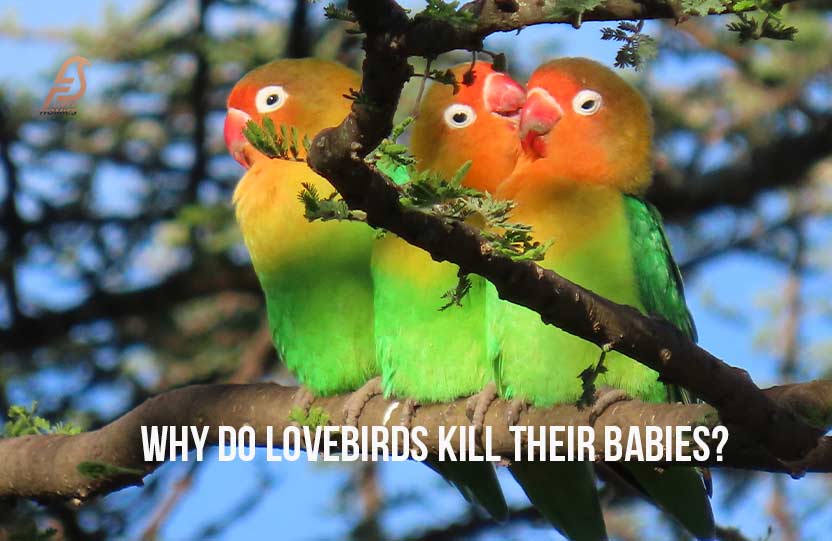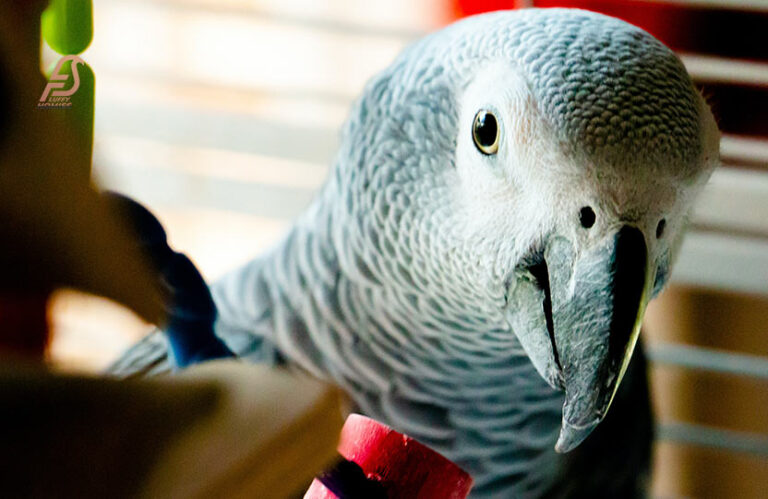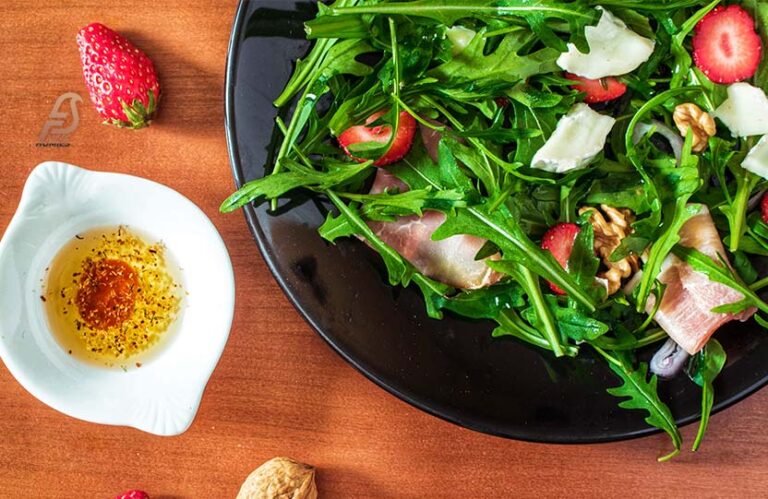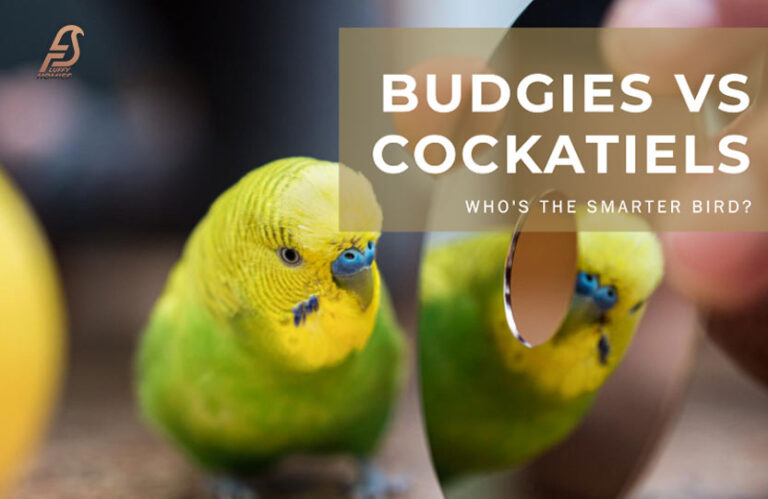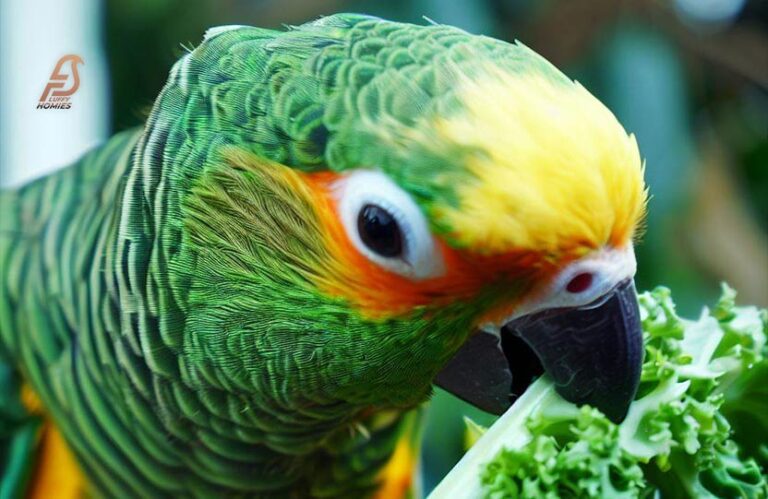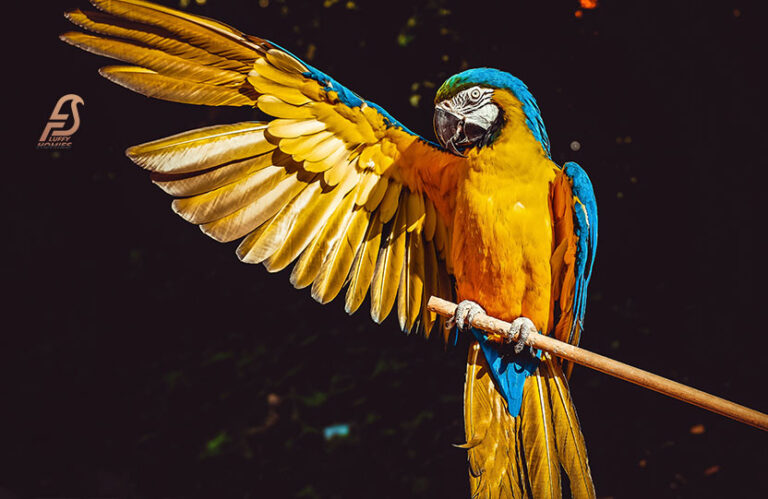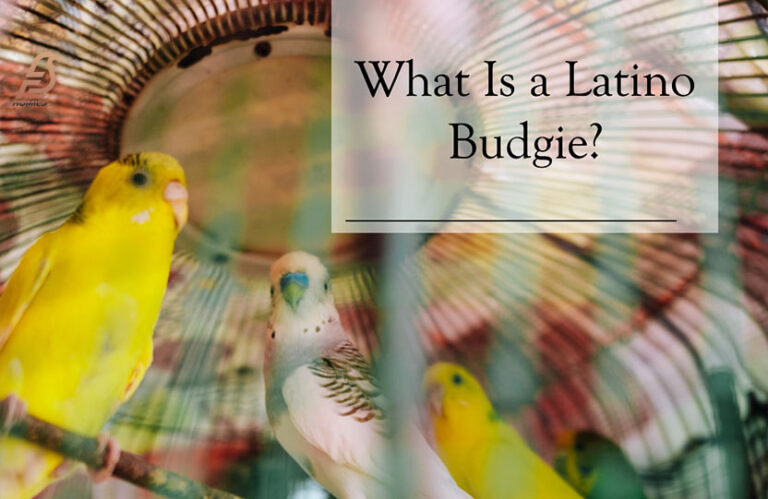Why Do Lovebirds Kill Their Babies? (From Love to Loss 2024)
For a very long time, those who are passionate about birds have treated lovebirds as valued companions due to their gorgeous plumage and charming personality.
Filial cannibalism, on the other hand, is a behavior that frequently causes confusion and unease about these small parrots, even though they are charming.
From the beginning of this article, we will embark on a trip to investigate the complexities of lovebird behavior, with a particular emphasis on the uncommon but noteworthy phenomena of lovebirds killing their children.
Why Do Baby Lovebirds Die?
To give the greatest care for their feathered friends, lovebird owners must understand why their babies may perish.
Despite lovebirds’ hardiness, several things could make their young precarious. Some typical causes of death in young lovebirds are:
Lack of Proper Nutrition
For baby lovebirds to grow and develop properly, there are certain nutritional requirements. Chicks risk starvation, illness, or death if their parents or guardians do not offer a healthy, balanced diet, which includes the right hand-feeding formulae.
Inadequate Temperature and Humidity
Lovebird eggs are quite vulnerable to variations in humidity and temperature, thus providing an inadequate environment is a major concern.
It is vital to keep the nesting habitat at a constant and suitable temperature and humidity. If the chicks are too hot or too cold, they will be feeble and more likely to get sick.
Parasitic Infections
Lovebird nests are vulnerable to infestations by parasites like worms and mites, which can harm young birds. Preventing and treating parasite illnesses can be achieved through regular veterinary checkups and cleaning of the nesting area.
Bacterial or Fungal Infections
Infections produced by bacteria or fungi can be extremely dangerous for lovebird chicks’ health. Nesting materials, contaminated food or water, or both can spread these diseases.
In the event of any signs of sickness, it is critical to seek quick veterinarian attention and maintain the surroundings clean.
Genetic Issues
Developmental issues in infant lovebirds might be caused by genetic disorders. This may not happen very often, but it can make the chicks much more susceptible to harm.
To reduce the likelihood of hereditary diseases, breeders should be careful to choose only healthy parents for their young.
Inadequate Parental Care
Lovebirds’ primary responsibility is to provide for their young. The chicks might not get enough care and attention from their parents if they are untrained, anxious, or uncaring. This can make you more susceptible to health problems and weaker overall.
Accidents or Trauma
Babies of lovebirds can potentially perish as a result of trauma or accidents that occur in the nesting area. To keep their charges safe from harm, caregivers should take all necessary precautions.
Congenital Abnormalities
The general well-being of some lovebird chicks can be compromised due to birth defects that leads to sudden deaths. These problems might not show up right away, and babies born with serious defects might not make it.
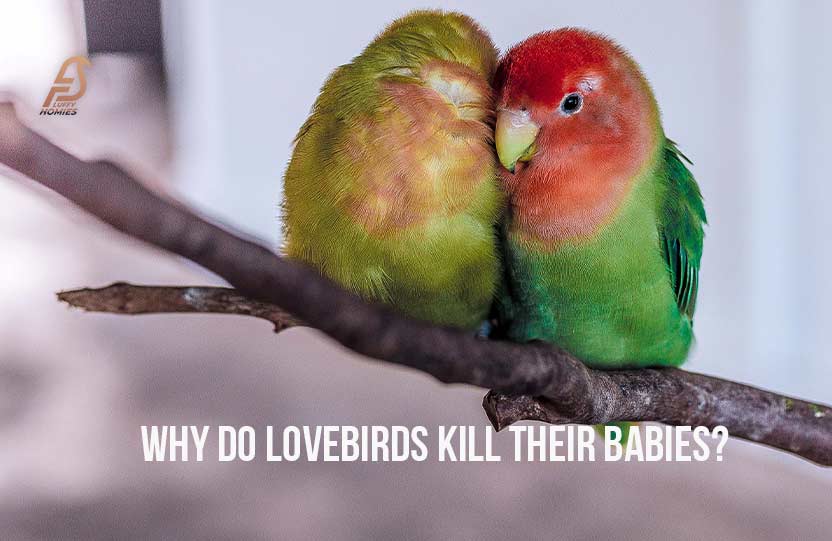
Do Lovebirds Eat Their Babies?
The response to the question is, in a nutshell, that it is not true. Lovebirds do not consume their young in any way. It is exceedingly uncommon for someone to behave in this manner, and it is typically the outcome of specific conditions that led to such an action.
If you are worried about any of the horrible aspects of lovebird parenting, you should not be concerned about them and need to contact an expert doctor.
Do Lovebirds Kill Their Babies?
Much like other aspects of bird behavior, the subject of whether or not lovebirds kill their young can be complicated and upsetting at times.
Despite lovebirds’ reputation for being kind parents, there have been cases of filial cannibalism, in which parents purposefully hurt or even eat their young.
This behavior, however uncommon, prompts us to wonder what could cause it. Feline cannibalism in lovebirds can be caused by a variety of factors, including but not limited to genetic predispositions, environmental stress, and disruptions during nesting time.
Lovebird lovers and owners who want to provide a happy and healthy home for their feathered friends would do well to familiarize themselves with the factors that contribute to this behavior.
Reasons Why Do Lovebirds Kill Their Babies?
Its a exceptional case that lovebirds eat their babies due to following reasons.
Stress
When it comes to lovebirds, stress might be a crucial component that can lead to the behavior of cannibalism.
Environmental stressors, disruptions, or changes in the nesting environment can cause an increase in the levels of stress experienced by their offspring.
As a consequence of this anxiousness, individuals may engage in aggressive behaviors, which may even include the sad act of killing their offspring.
Lack of Food
If there is a lack of food, lovebirds, like many other species of birds, may resort to killing their young to survive. Parent lovebirds may have difficulty giving their children an adequate and continuous amount of nutrients if they are living in an area where resources are scarce.
Because of this scarcity, people may get desperate, which, sadly, might lead to the practice of cannibalism among family members as a last resort.
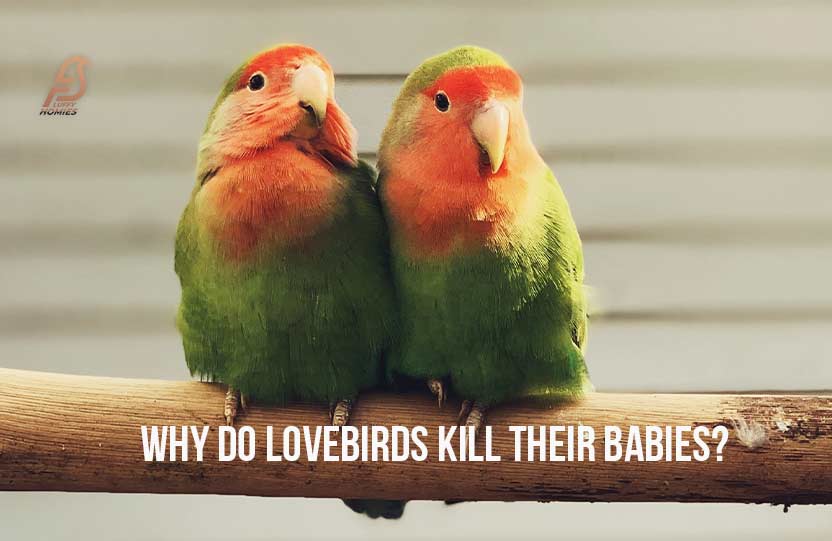
Lack of Experience of Parents
It is possible for parents of lovebirds to accidentally injure their young, especially if this is their first time breeding. This is especially true if it is their first try at reproducing.
It is possible for parent birds to have difficulty performing crucial caregiving responsibilities or to accidentally mishandle their young bird progeny.
A lack of parental abilities can result in unexpected injuries, and in the most severe circumstances, accidents that result in the death of the chicks.
Concerns Regarding the Health of Chicks
Girls who are born with health problems are faced with a greater degree of vulnerability, and parents who are in love with their children may feel that their children’s well-being is jeopardized.
Lovebirds may engage in filial cannibalism as a response to perceived weakness or malformations in the chicks. This behavior is a response to the fact that lovebirds prioritize the general health of their brood.
How to Stop Love Birds from Killing Their Babies?
Filling Their Food Pots
Improving the lovebirds’ diet is an important step in reducing the likelihood that they would engage in destructive behaviors, such as murdering their offspring.
Your regular provision of a varied meal including watermelon and grapes that rich in vitamins, minerals, and other necessary nutrients will go a long way towards ensuring the lovebirds’ good health.
To keep stress levels down and encourage healthy parenting, it is essential to eat enough nutrients during the breeding season.
Eliminate Stress and Boredom
Lovebirds, like many sociable and clever birds, can experience stress and boredom that may leads to sudden death in an uninteresting environment. Making an interesting and stimulating environment is crucial to protect their young from damage.
They are less likely to act aggressively due to boredom-induced stress if you provide them with toys, perches, and activities that encourage their natural behaviors. A breeding experience that is free of stress is more likely to be successful.
Establish a Separate Cage for the New Lovebird
It is essential to carefully observe how the new lovebird interacts with the current pair if you decide to introduce them. To see if the new lovebird gets along with the older one, it’s best to keep them in different cages at first.
They will integrate more easily and be less likely to be aggressive towards the infants if introduced slowly and under supervision. Taking this preventative measure aids in keeping the breeding and parenting environments peaceful.
Why Do Lovebirds Destroy Their Eggs?
An intricate facet of bird behavior is shown by the phenomena of lovebirds destroying their eggs in response to stress or disturbance that may create due to loneliness.
Environmental changes, health issues, or disruptions to the nesting habitat can all contribute to stress, which in turn might promote this puzzling behavior.
Because of their extreme sensitivity to environmental stresses, lovebirds—which are notoriously careful nesters—may destroy their eggs as a defense mechanism.
The exquisite nesting equilibrium that lovebirds strive for is disrupted when there are environmental disruptions, including unexpected shifts or intrusions.
When birds are under stress, their drive to find the best possible place to lay their eggs may cause them to destroy their eggs.
The delicate role that health-related stress plays in this behavior is evident whether it affects the parent birds or the developing eggs. As a survival mechanism, lovebirds may destroy their eggs to adapt to harsh environments.
Lovebird parenting is complex, and we can learn more about it by studying these behaviors in wild and captive birds. Ultimately, caretakers can establish a stable environment, offer adequate nesting materials, and seek veterinarian help to decrease the variables contributing to egg destruction, ensuring a happy nesting experience for lovebirds.
Why Do Mother Birds Push Babies Out of Nest?
The complex behavior of mother birds forcing their young out of the nest depends on many factors, including the chicks’ readiness to fly and their instincts to protect themselves from predators.
For Protection
When it comes to avoiding predators, mother birds are always on the lookout for danger. The act of expelling a chick from the nest is a calculated effort by a mother to protect her entire brood from potential dangers, such as predators.
To increase the likelihood of survival for the remaining chicks, the mother may remove a weak one from the nest. This action serves to remove any potential food source for predators.
Ready to Fly
Conversely, the developmental stage of the chicks is also associated with when they are pushed out of the nest. The ability to sense when their young are ready to take flight is hardwired into the brains of birds.
Chicks are sometimes encouraged by their mothers to venture out into the world when they reach a specific developmental milestone.
This natural urge is a turning point in the process by which the chicks move from being completely reliant on their mother to learning to fly on their own.
Do Lovebirds Fight to the Death?
Because of their friendly and sociable personalities, lovebirds usually avoid bloody battles. Although there may be some territorial disputes, particularly during mating season or when one bird tries to assert its authority over another, lovebirds are not naturally violent. They prefer to spend their time interacting with others and developing strong pair ties.
Conflicts between lovebirds are less likely to be life-threatening and more often to be ritualistic displays of aggression.
As a method of establishing hierarchy or settling conflicts, these displays may incorporate vocalizations, pecking, and posture.
Lovebird owners must keep a close eye on their feathered friends and step in when aggressive behavior becomes a real danger to their safety.
To lessen the chances of serious fights, it’s important to provide a peaceful environment, and enough space, and make sure that lovebirds are compatible when kept together.
To address and treat any underlying concerns, it is recommended to visit a veterinarian or an avian behavior specialist if hostility persists.
Conclusion: Why Do Lovebirds Kill Their Young?
Environment, parental experience, and chick health all have a role in the development of lovebirds’ intricate behaviors, like filial cannibalism.
Lovebird owners must understand the factors that can cause their kids to be killed, such as food scarcity, parental inexperience, health problems, and stress.
A happy breeding experience can be fostered by providing a supportive environment, making sure the parents are getting enough nutrients, and helping out novice parents.
Lovebird enthusiasts may contribute to their feathered friends’ health and happiness by learning about and fixing these issues, creating a peaceful and supportive environment that reduces the likelihood of disruptive behaviors.
Frequently Asked Questions
Addressing the root causes, such as environmental stressors or health issues, is essential. Ensure a suitable nesting environment, and proper nutrition, and consult with a veterinarian for guidance to improve the chances of successful breeding.
Lovebirds may kill their young due to factors like food shortages, parental inexperience, health issues, or stress. Understanding these causes helps bird owners create a supportive environment, reducing the risk of distressing behaviors.
Signs of a dying lovebird include lethargy, labored breathing, changes in posture, refusal to eat, and isolation. If you notice these symptoms, immediate veterinary attention is crucial for diagnosis and potential intervention.
Female lovebirds may become aggressive due to hormonal changes, nesting instincts, or protective behaviors. Environmental stress, breeding season, or territorial disputes can contribute. Providing a calm and enriched environment helps manage aggression in female lovebirds.
